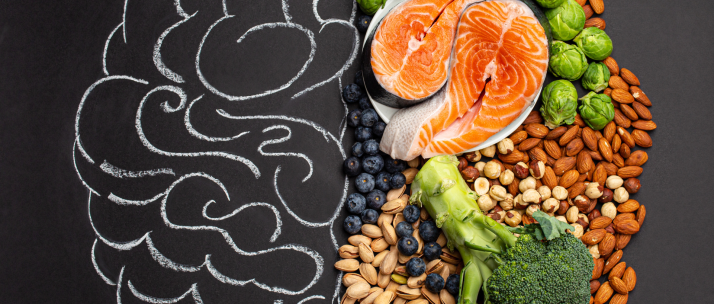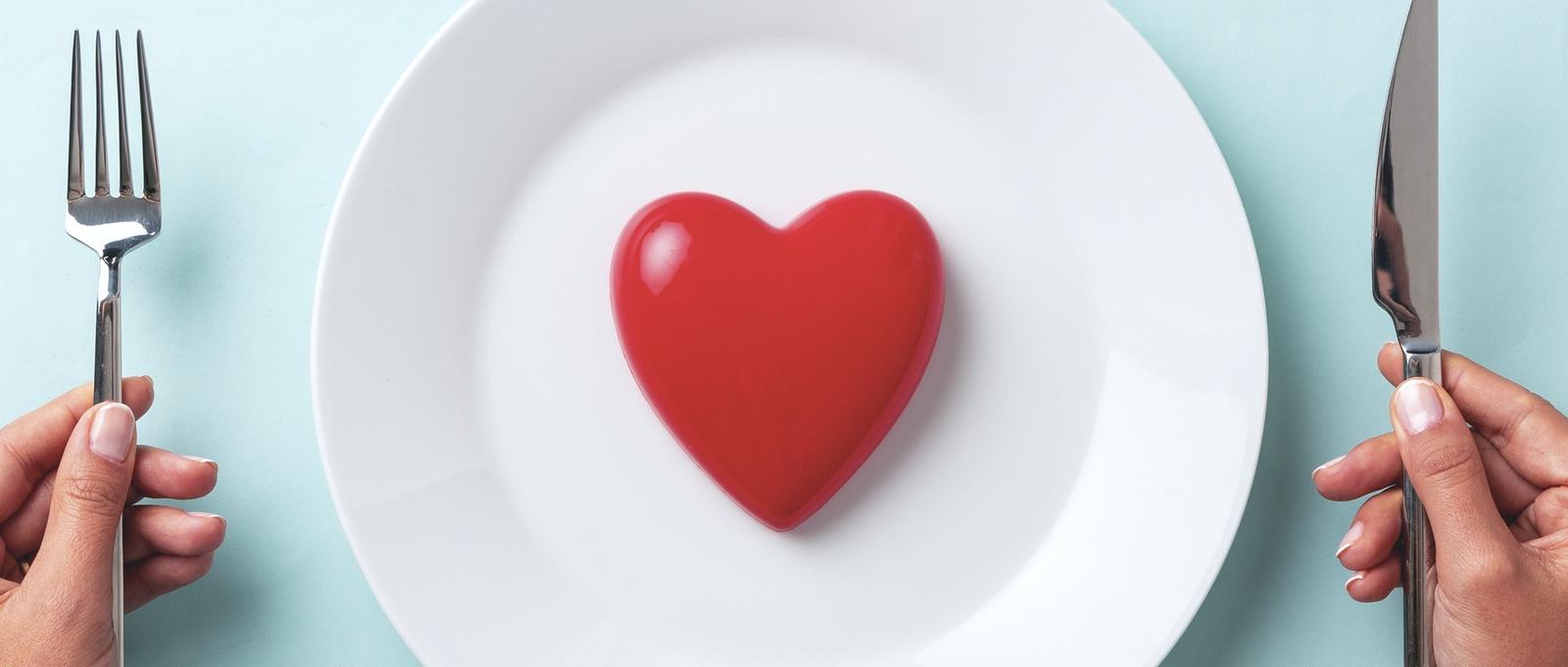
Brain food: what to eat, when to eat, recipes
Peer reviewed by Dr Krishna Vakharia, MRCGPLast updated by Andrea DowneyLast updated 13 Feb 2024
Meets Patient’s editorial guidelines
- DownloadDownload
- Share
- Language
- Discussion
A healthy diet is very important for your brain function and mental health. We find out the best foods for brain health, the best times to eat, and share some nutritious brain food recipes.
In this article:
Your brain needs certain nutrients to work properly, which translates to better cognitive performance - helping you to think, learn, problem solve, remember things, and more. Eating the right foods for your brain - or brain food - can also help protect it from deterioration.
Continue reading below
How does food affect your brain?
Got a big test coming up? Huge project at work? Or just feel you need to think a bit clearer? Your diet can play a big part in this.
Dr Deborah Lee of Dr Fox Online Pharmacy explains what foods you should be eating to get the best out of your brain.
"Fresh foods contain high levels of health-giving antioxidants which protect the cells of the body from DNA damage. Known as oxidative stress, this is a major cause of many of the diseases we see today - heart disease, type 2 diabetes, cancer, depression, and dementia."
Dr Lee says obesity is also linked to poor brain health, with a lot of research linking being overweight to poor cognitive performance.
"Obesity is often linked to poor dietary habits, with excess consumption of high-fat and high-sugar foods, and often processed foods, which are also high in salt and additives, also detrimental to brain function. It is a significant risk factor for dementia," she adds.
MIND your diet
Let's take a look at how you can ensure you're eating well for your brain power.
What is the MIND diet?
Dr Lee says that the best brain food diet to follow to ensure you're getting the right nutrients is the MIND diet - a combination of the Mediterranean diet and the DASH (dietary approaches to stop hypertension) diet.
"The MIND diet was developed after research studies showed that eating large quantities of vegetables was linked to a slower rate of cognitive decline. The best effects were related to the highest consumption of green leafy vegetables and berries," she explains.
"Plant foods are rich in flavonoids, plant substances which have physiological and biochemical benefits for human health. They have antioxidant, anti-inflammatory and anticarcinogenic properties."
A 2015 study of more than 1,000 elderly people without dementia, who were asked to complete a dietary questionnaire over 10 years, found those with the highest intake of MIND foods had the slowest risk of cognitive decline and lowest risk of dementia1.
The MIND diet lists 10 healthy brain foods, including:
Green leafy vegetables.
Other vegetables.
Nuts.
Berries.
Beans.
Whole grains.
Seafood - oily fish.
Poultry.
Olive oil.
Dr Lee suggests you aim for three portions of whole grains a day, one portion of leafy green veg a day, two portions of any other veg a day, and two portions of berries per week.
She also suggests eating oily fish at least once a week and two portions of poultry per week. Nuts are also on the menu, with a recommended five portions a week.
Continue reading below
When is the best time to eat?
While it's important to eat healthy as often as you can, the time you eat some of these brain foods can also play a role in how your brain functions.
"In the mornings, when you wake from sleep, this is a time for your brain to have an influx of nutrients such as whole grains, berries, protein and caffeine," Dr Lee says.
It's bad news for the late night snackers - dietary experts agree that eating late in the evening can contribute to obesity and poor sleep patterns. The advice is to avoid eating after 8pm.
"If you need to snack before bed, nuts can be a good choice," Dr Lee adds. "Walnuts contain magnesium and pistachios contain melatonin, both of which aid sleep. Natural yoghurt which contains probiotics - with fruit such as cherries that are high in melatonin - can also be a good suggestion."
What are the best foods for brain health?
Dr Lee and dietitian Helen Bond of the British Dietetic Association have shared their top foods for brain function:
B vitamins - found in eggs, poultry, other meat, oily fish, fresh fruit, leafy green vegetables, wholegrain bread and some fortified breakfast cereals.
Niacin - found in fish, poultry and eggs. If you're vegan look for nuts, seeds and whole grains.
Vitamin C - found in berries, citrus fruits, green vegetables.
Magnesium - found in green leafy vegetables, nuts, whole grains.
Zinc - found in eggs, cheese, nuts, seeds and meat, poultry and fish.
Iron - lean red meat, oily fish, green leafy vegetables, fortified cereals.
Omega 3 - rich in oily fish like sardines, salmon, herring and mackerel.
Vitamin K - found in green leafy vegetables, soy products and eggs.
Bond reminds us that plenty of water is essential for brain function, as is good sleep and regular exercise.
"Our brains are made up of around 75% water, so it follows that drinking water is vital for healthy brain function and good mental health. Dehydration can affect cognitive performance and motor function including fatigue, mood, concentration, short-term and long-term memory, and attention," she says.
Brain food recipes
While it can be hard to fit a healthy, balanced diet into busy schedules, there are some easy recipes to get those nutrients to your brain.
Breakfast
Orange and blueberry bircher - an overnight oat recipe with seeds and delicious fruit that takes five minutes to prepare.
Berry bircher - another overnight oat recipe perfect for busy mornings, this time packed with berries and banana.
Lunch
Sardines and watercress on toast - an easy lunchtime recipe using oily fish and wholegrain toast.
Tortellini with pesto and broccoli - an easy packed lunch with green veg and pine nuts.
Dinner
Salsa spaghetti with sardines - a quick and easy dinner, packed with oily fish, tomatoes and olives, that's low in calories too.
One-pan salmon with asparagus - if you've got a bit more time this one pot recipe is packed with nutrients.
Continue reading below
Further reading
Patient picks for Recipes

Diet and nutrition
Recipe: Gluten-free hot cross buns
I have a sister-in-law and two nieces who are coeliac and I make these buns for them as an Easter treat. They love them warmed up with a spread of butter or jam. The best thing about these buns is that they can also be frozen for up to a month, so you can enjoy a delicious, gluten-free treat any time
by Val Stones

Diet and nutrition
Eat your way to a healthy heart: tasty recipe ideas for every meal
Taking good care of your heart is vital for your health. Exercising regularly, quitting smoking, cutting back on alcohol, sleeping well, and managing your weight can all help keep your heart healthy. However, one of the most important ways to support a healthy heart is by eating a balance of healthy foods.
by Victoria Raw
Continue reading below
Article history
The information on this page is peer reviewed by qualified clinicians.
13 Feb 2024 | Latest version
18 Oct 2022 | Originally published
Authored by:
Andrea Downey

Ask, share, connect.
Browse discussions, ask questions, and share experiences across hundreds of health topics.

Feeling unwell?
Assess your symptoms online for free